After promise of free college tuition, this Kansas town isn't just growing. It's booming.
NEODESHA , Kansas — The timeframe isn’t exact, but Tucker Leck will be the 52nd or 53rd governor of Kansas in a couple of decades, give or take a few years.
The Neodesha High School junior has it all planned out: Attend Kansas State University after he graduates high school to study agricultural economics, go to law school either at Washburn University or Notre Dame, return to teach ag econ at K-State for about a decade, then enter the political profession, with the end goal of the governorship.
The plan, of course, is deceptively simple. Leck has no illusions about the challenges he’ll face in making his dream career pathway come true.
But he’ll have a leg up compared to other Kansas high school graduates as a member of the sixth class of Neodesha Promise Scholarship recipients.
Announced in fall 2019, the Neodesha Promise Scholarship — funded by high school alumnus and philanthropist Ben Cutler — vowed to turn the tide for the southeast Kansas town of about 2,100, which for years had seen a dwindling population and enrollment in the school system.
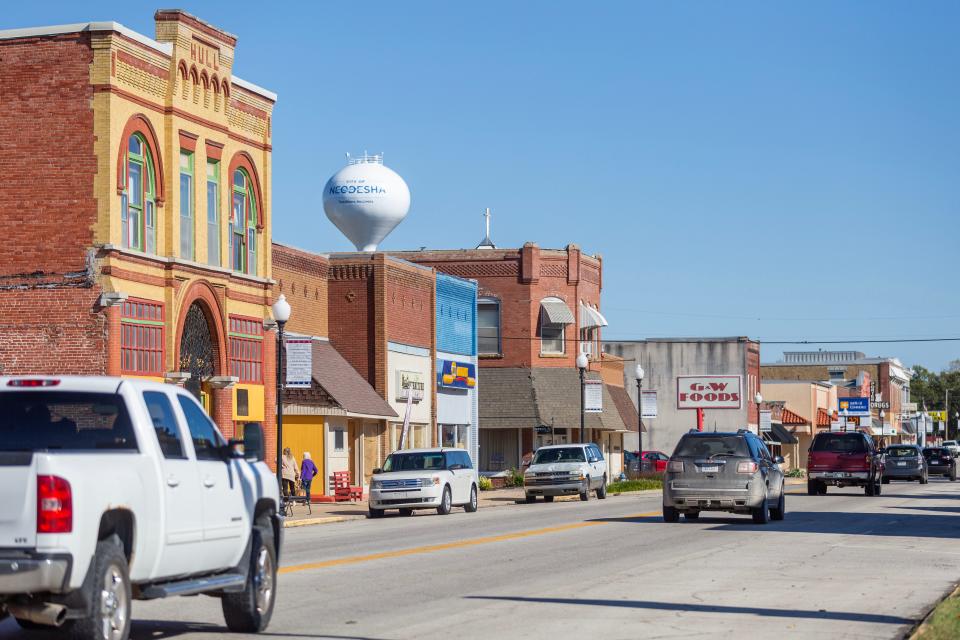
With Cutler’s funding from a lifetime as an executive in the finance and insurance industries, the program essentially guaranteed qualified graduates like Leck from Neodesha High School that their tuition to any college in Kansas or the country would be paid for, at least up to the equivalent of the highest in-state tuition and fees in Kansas.
Voices: Want to make college more affordable? Stop handing out student loans.
Four years and one pandemic later, the program has been a spark for the community, said Rebekah Peitz, who administers the program and helps students navigate college even after graduation.
Ben Cutler started Neodesha Promise to revitalize a hometown in decline
After selling his company around 2017 and retiring, Cutler knew he wanted to make a difference for a hometown that had practically raised him.
“It hit me when I was in my early 30s,” Cutler said. “I was a business executive in New York City, and I was talking to my coworkers and friends in similar business positions. I began to realize how lucky I was to have grown up in a small Midwestern community, compared to the childhoods most of my colleagues had had. It gave me a strong work ethic, and a strong moral compass.
"I had a lot of people in town who mentored me, so I always felt like I owed Neodesha a big debt of gratitude for raising me.”
Since he left in the 1960s, Neodesha had shrunk by almost half, after the town’s main employer, Standard Oil, closed up shop. Cutler had grown tired of seeing boarded-up businesses and declining prospects for his hometown every time he returned to visit.
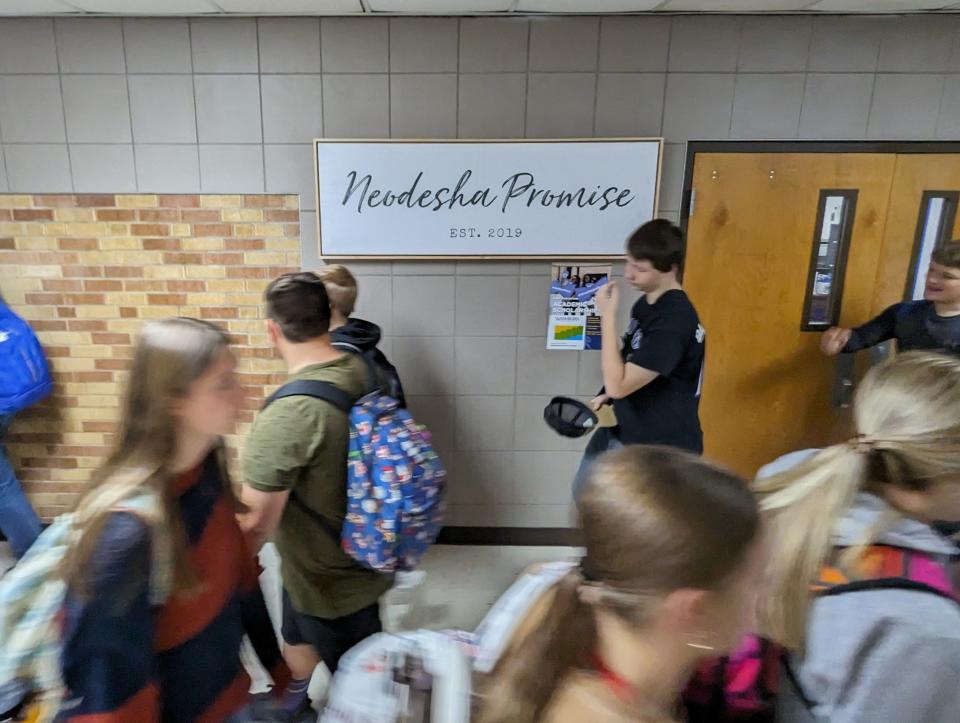
Given his work in various nongovernmental organizations, the business executive was somewhat familiar with “Promise” scholarship programs in the country.
Such programs, which help students with scholarships, are typically set up as “last dollar” or “second payer” programs, in that they cover any remaining tuition or costs after other federal aid, financial assistance and scholarships are applied.
Student loan debt: Averages and other statistics in 2023
Cutler was intrigued, and he began researching and speaking with other Promise program founders and coordinators around the U.S.
In fall 2019, he arranged a phone call with Neodesha USD 461 superintendent Juanita Erickson that ultimately changed the face of the school district.
Through a foundation established in his mother Marilyn Cram Cutler’s name, the district announced on Nov. 19, 2019, that the philanthropist would fund a Promise program for any Neodesha High School district resident who graduate with at least a 2.5 GPA and 21 ACT score and complete several dozen hours of community service.
“My aspiration, I guess, is very simple — I dream that Neodesha is turning into a community that people want to move to, not just because of the Promise Scholarship but also for an excellent educational system,” he said. “(Parents) want to find a community where their kids can have the highest chance of succeeding in life, and I’d like that community to be Neodesha.”
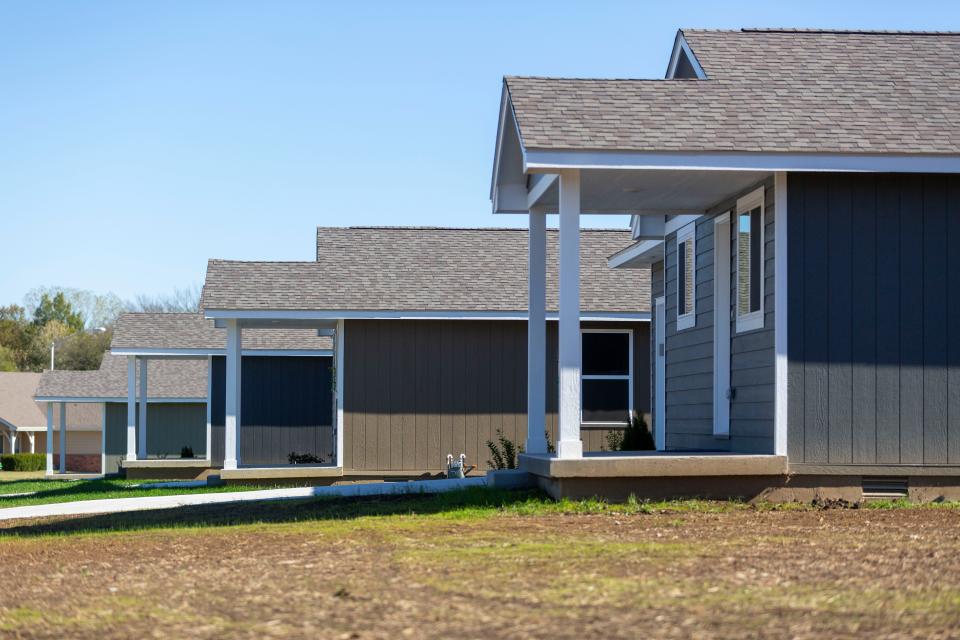
Neodesha is bucking the trend and growing in southeast Kansas
In the four years since the announcement, the exact success of the program has been difficult to quantify, especially in the broader town.
Neodesha High School’s graduation and post-secondary success rates actually decreased slightly in recent years. The school posted a graduation rate of 85.7% for the class of 2022, which is a few percentage points lower than the state average. The post-secondary success rate, which measures the percentage graduates who remained enrolled in college two years after high school, also decreased, to about 54%.
School officials have emphasized that in a smaller, rural district, rates more easily swing when a single student in a class of 50 amounts to about two percentage points.
Additionally, Neodesha High School has not been immune to the effects of the pandemic on schools, and the school has a high percentage of first-generation students who can become overwhelmed at the prospect of going to college, even if paid for.
“You can have the Promise and it be an awesome gift, but ultimately and especially with a high percentage of first-generation students, you can be accepted, but how do you go to college?” asked Valon Jones, the high school’s college and career advocate. She helps Neodesha students navigate the college search and application process.
The best measure so far of the program’s success in four short years, then, has been in the influx of interest and investment in the school and town, officials said.
Immediately after the announcement, the district began fielding calls from families around southeast Kansas who were interested in moving to Neodesha. Since the 2019-2020 school year, USD 461 has grown by more than 7%, at a time when many other rural Kansas school districts have lost enrollment.
“Some of that has to do with industry, and some with the community itself,” said Erickson, the superintendent. “But I have to think some of it has to do with the Promise scholarship, and its implementation. The stars are aligning, and that’s helped us as a school district not have to make some of the cuts other districts have had to make.”
The mayor of Neodesha, Devin Johnson, was elected shortly before the program’s announcement in November 2019. He jokes that he likes to tie any of the success of the town and the Promise program to his election.
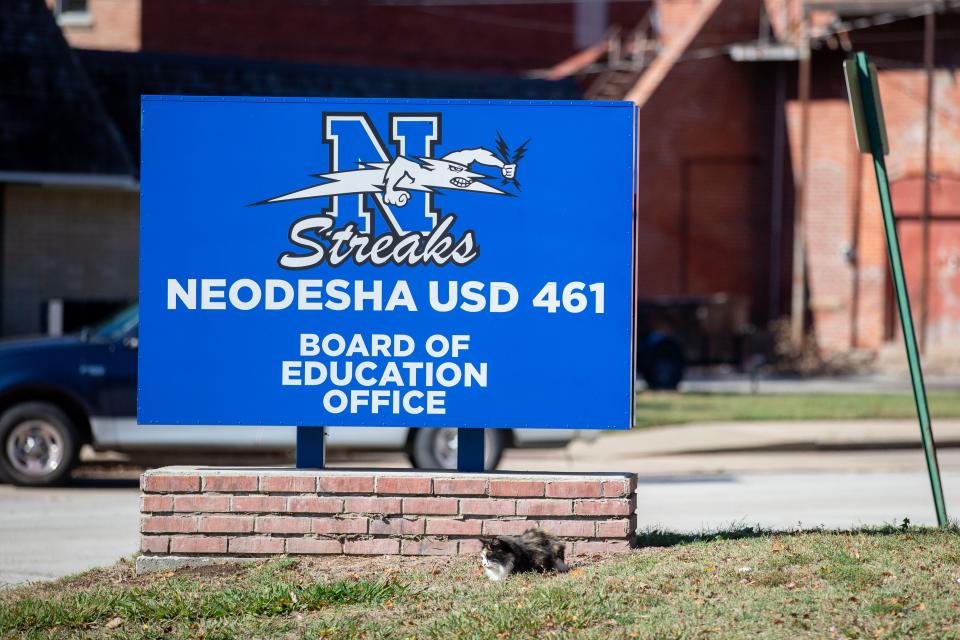
“It was almost perfect timing, when the program was announced,” Johnson said. “The growth since then has been unprecedented. We’ve had growth in our schools, which is translating to growth in our community. It’s growing our tax base, which allows us to do more and makes it more appealing for businesses to come in.”
Since 2019, Neodesha has expanded the manufacturing industries that make up the base of the city’s economy, with London-based Sicut Industries announcing in 2021 it would open a plant in Neodesha to manufacture composite railroad ties made out of recycled plastic.
For the first time in at least a few decades, developers began building speculative homes, or houses without buyers lined up beforehand, based on the intense demand for housing in the small city, the mayor said. That’s been Neodesha’s main challenge as of late, especially since the city is physically constrained by the Verdigris and Fall rivers to the east and west, respectively.
“I do feel like we’re in a growth trend, and it’s showing in the homes we’ve built,” Johnson said. “We’re still in that 'prove it' stage to get more builders in who can do 50 homes at once, but those are the kinds of conversations we’re having, and I think that’s on the horizon.”
For Neodesha Promise scholars, there's a sense of responsibility to pay gift forward
While growing, Neodesha hasn’t completely changed — yet.
By the nature of the Promise program and the fact that the closest university, Pittsburg State, is still an hour away, most college-going Neodesha Promise Scholarship recipients must move away from home. (Some are able to complete associate's degrees and certificates at closer community and technical colleges.)
The key to bringing them back, then, is to ensure that they have jobs to return to. That turns into a chicken-and-egg problem for Neodesha, in that such specialized jobs need a big enough population base to support them.
But with the gift they’ve been given, many of Neodesha High School’s graduates say they feel the responsibility and honor to return home, once they complete their studies elsewhere.
Grace Johnson, who graduated Neodesha High in 2022, is now a sophomore on a pre-nursing track at K-State.
The sophomore said college was always in the cards for her, but the Promise scholarship made it so that she could find success at school, in that she has not had to worry about paying tuition or making ends meet with a full-time job.
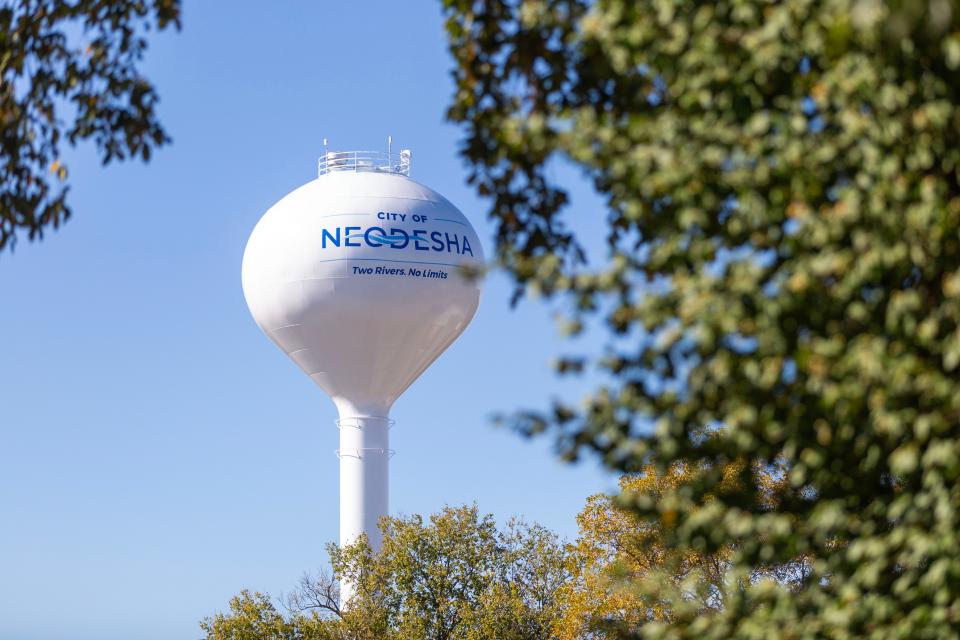
She hopes to return to Neodesha after graduating to work in pediatrics or labor and delivery in the region, with an ultimate goal of becoming a nurse practitioner.
“Neodesha has always been home,” she said. “The community pours so much into the kids. There’s nowhere else I’d want to be. It’s where I want to raise my kids and family one day. … It’s where I’d want to be anyways, with or without the money.”
Julieona Erb, a sophomore at Northeastern Oklahoma A&M College, also feels similar. Her end goal is to earn a veterinary medicine doctorate at K-State and open a large animal practice in Neodesha.
“There is a little bit of a feeling of responsibility with the Promise that makes me feel like I should come back,” she said. “But also, I grew up here. Neodesha is home.”
Leck, the Neodesha High junior and gubernatorial hopeful, said it’s not as much pressure as it is a responsibility to pay forward the gift he and other students have received.
“This opens up a plethora of opportunities because now, I’m able to go to a four-year institution, obtain my agriculture economics degree, and do it nearly free of charge, from a tuition standpoint,” he said. “That just means so much, because I’ll be able to enter the classroom and not have to worry about how I’m able to pay for it, be stress free, and focus on my academics and how I can help my community, school and state.”

Neodesha Promise is inflection point for small Kansas town
Four years into the Neodesha Promise program is still relatively early, program officials said. The first class of recipients who pursued a bachelor's degree would only be receiving their degrees later this school year.
Some have received and lost the scholarship, which require students to remain in “good standing” and maintain a 2.5 GPA each semester in college.
What they don’t lose, however, is the support of Neodesha High staff like Peitz, the college academic coach.
“Yes, they might lose (the scholarship), but we emphasize to the Promise board that the students probably would have never gone to college, and now that they have it, they are more likely to stay there,” Peitz said.
School and community officials, instead, are looking long-term for the program, and they’re banking on the influx of families and students they’re seeing to help change Neodesha’s prospects.
The community can never thank Cutler enough for what he’s done for the community and its children, said Drew Johnson, who is Grace Johnson’s father and a member of the Neodesha Board of Education.
It’s been a “gamechanger.”
More: Kansas is growing this decade, but the state isn’t ready to meet the demand for degrees
“You do the simple math, and say with round numbers, it’s $10,000 a year per student,” Drew Johnson said. “That’s $40,000 over the course of a four-year program. That’s a lot of money, and that’s fifty-fold for an entire class of students. It’s many parents in our community, and our community has been blessed with this gift.”
Cutler, for his part, said he recognizes there remains a lot of work to be done, and changing the entire character of a blue-collar town will take time.
His hope, though, is that with the funding, he and Neodesha officials have created a compelling enough vision for the town to buy into.
“We need the whole community, and the school system, behind this — stepping up to the plate, tightening the belt and making the necessary changes to improve the schools and make the community more prosperous,” Cutler said. “It’s not going to be easy. I fully recognize we’re taking on a big task here. But that’s my hope.”
Rafael Garcia was an education reporter for the Topeka Capital-Journal.
This article originally appeared on Topeka Capital-Journal: Scholarship gives free tuition to Kansas town's high school graduates

